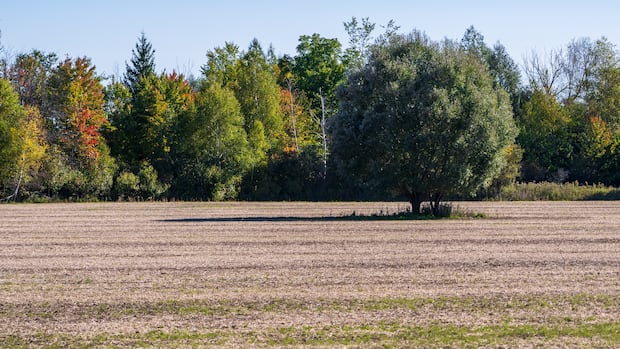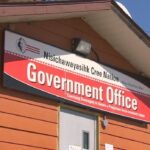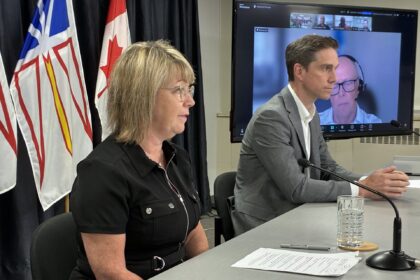OttawaA heavy debate about who is legitimately Algonquin and what reconciliation means played out in the Champlain Room at Ottawa city hall on Wednesday, where a committee heard from many of the region’s First Nations leaders before ultimately deciding the future suburb of Tewin will go ahead. First Nations opponents faulted poor consultation, urged council to correct ‘historic wrong’The City of Ottawa has identified this land to host a future sustainable community called Tewin, as proposed by the Algonquins of Ontario and their partner Taggart. (Francis Ferland/CBC)A heavy debate about who is legitimately Algonquin and what reconciliation means played out in the Champlain Room at Ottawa city hall on Wednesday, where a committee heard from many of the region’s First Nations leaders before ultimately deciding the future suburb of Tewin will go ahead. Ottawa’s planning and housing committee voted 7-5 Wednesday to forge ahead with the planned suburb in Ottawa’s rural southeast, as they voted down a motion from Bay ward Coun. Theresa Kavanagh that would have effectively killed the project. Most councillors argued it was too late to turn back on the project led by the Algonquins of Ontario (AOO) and developer Taggart Group.They made the decision despite warnings from representatives of 10 First Nations not involved in the AOO, who said the city did not consult them properly when Tewin was first pursued in 2021, and that councillors have a moral and legal obligation to them. “It is very upsetting that we must discuss Tewin this deeply into the process without adequate consultation and respect for my Alqonguin Anishinābeg Nation,” said Grand Chief Savanna McGregor of the Algonquin Anishinabeg Nation Tribal Council, which represents seven federally recognized First Nations, including Kitigan Zibi.”We’re asking you to correct this planning error and what could be a historic wrong,” said Grand Chief Lisa Robinson of the Algonquin Nation Secretariat, which represents Barriere Lake, Temiskaming and Wolf Lake First Nations.When city council expanded Ottawa’s urban boundary to allow the 445-hectare community, despite it receiving a poor score under the city’s own planning process, it cast the project as furthering reconciliation with Indigenous peoples.Jim Meness, executive director of the Algonquins of Ontario, urged the city’s planning and housing committee to proceed with its Tewin project. (Kate Porter/CBC)Jim Meness, executive director of the AOO, made that same argument on Wednesday. He said Tewin is modelled around Algonquin principles and empowers First Nations people.”It’s more than a development,” he said. “It’s reconciliation in practice. It’s our people, for the first time in the city’s history, building a community in our own unceded territory, guided by the Algonquin values of stewardship, sustainability and belonging.” Who is Algonquin?Yet Robinson, McGregor and others questioned whether Meness’s AOO is a legitimate representative of the Algonquin people. It includes only one federally recognized First Nation, the Algonquins of Pikwàkanagàn, and was formed to pursue a modern-day treaty with the Ontario and federal governments.Chief Vicky Chief of the Timiskaming First Nation pointed to disputes over the ancestry claims of some AOO members. In 2024, the AOO removed some 2,000 voters for not being Algonquin. “It is of the utmost importance that council understand that the AOO does not consist of or represent the interests of legitimate, federally recognized Algonquin rights holders,” she said. I am particularly concerned by the suggestion that a municipal council should determine which Indigenous voices are legitimate and which are not.- Wendy Jocko, a former chief of the Algonquins of Pikwàkanagàn First NationThe AOO notably does not include several First Nations in Quebec who do not recognize the Ottawa River as a boundary to their land claims. Robinson said the city consulted “the wrong party” and excluded the actual rights holders.”That is not reconciliation,” she said. “This is actually a continuation of colonial practice.”The AOO and its supporters called it painful to have their Indigenous identity debated in the committee chambers.”I am particularly concerned by the suggestion that a municipal council should determine which Indigenous voices are legitimate and which are not,” said Wendy Jocko, a former chief of the Algonquins of Pikwàkanagàn First Nation and champion of the Tewin project, who appeared before the committee as an individual. Jocko said blocking Tewin would cost the city millions of dollars in legal expenses and set back efforts to address Ottawa’s housing crisis. The community is expected to house as many as 45,000 people. A Tewin consultant warned removing the development from the urban boundary would likely result in a challenge to the Ontario Land Tribunal, which hears planning appeals and could overturn any city decision. The city’s top lawyer, Stuart Huxley, said the city would likely lose that appeal.But opponents of Tewin warned that driving forward with the development could land the city in much deeper legal difficulties, since that could violate the constitutional duty to consult Indigenous people.Frankie Cote, son of Claudette Commanda, shared his mother’s remarks about the future Tewin project at Ottawa city hall on Wednesday. (Kate Porter/CBC)Frankie Cote, who was chief negotiator for Indigenous land rights and self-determination at Kitigan Zibi Anishinabeg First Nation, made that argument as he shared with the committee a message from his mother, elder Claudette Commanda, who blasted Tewin as “land theft.” “If true reconciliation does not take place, the only way we can force reconciliation to take place is through the courts,” he said.Councillors vote down compromiseSeveral councillors said they were uncomfortable adjudicating who is and is not a legitimate representative of the Algonquin Nation, but they sparred over the merits of the Tewin project. Capital ward Coun. Shawn Menard said approving it was wrong in 2021 and remains wrong today. He argued that it will saddle the city with higher operating costs for decades to come.”Now here we are again, this council, making another ridiculous decision,” he said.Planning committee chair Jeff Leiper said Tewin would be an inefficient community, since the pipes needed to service it are simply too long.Yet a majority had no appetite to reopen the decision, and warned doing so would put tens of thousands of new homes at risk.”There are consequences to moving forward. There are consequences to not moving forward,” said Rideau-Jock Coun. David Brown. “But we can’t continue to relitigate past decisions of council. We must move forward, we have housing targets that we have to meet.” The original Tewin area proposed to city council in 2021 by the Algonquins of Ontario and Taggart is seen in blue, while the 445 hectares eventually added for urban development are within the dashed line. The contours of provincially significant wetlands designated in 2024 are shown to the right of the development area. (CBC News)Gloucester-Southgate Coun. Jessica Bradley came up with a compromise motion that would have sent city staff back for further talks with the First Nations that oppose the development, while punting the rest of Kavanagh’s motion until after those consultations are complete.Beacon-Hill Cyrville Coun. Tim Tierney said that would merely be kicking the can down the road. City staff said they will conduct those consultations regardless, as Tewin moves through the remaining hoops in the planning process.The Bradley motion failed by the same margin as Kavanagh’s, 5-7.Councillors who opposed the Kavanagh and Bradley motions were: Glen Gower, David Brown, Cathy Curry, Laura Dudas, Clarke Kelly, Wilson Lo and Tim Tierney. Those who supported the motion to do more consultation or remove Tewin from the official plan included: Jeff Leiper, Riley Brockington, Laine Johnson, Theresa Kavanagh and Ariel Troster.ABOUT THE AUTHORArthur White-Crummey is a reporter at CBC Ottawa. He has previously worked as a reporter in Saskatchewan covering the courts, city hall and the provincial legislature. You can reach him at arthur.white-crummey@cbc.ca.
Wednesday, 4 Mar 2026
Canada – The Illusion
Search
Have an existing account?
Sign In
© 2022 Foxiz News Network. Ruby Design Company. All Rights Reserved.
You May also Like
- More News:
- history
- Standing Bear Network
- John Gonzalez
- ᐊᔭᐦᑊ ayahp — It happened
- Creation
- Beneath the Water
- Olympic gold medal
- Jim Thorpe
- type O blood
- the bringer of life
- Raven
- Wás’agi
- NoiseCat
- 'Sugarcane'
- The rivers still sing
- ᑲᓂᐸᐏᐟ ᒪᐢᑿ
- ᐅᑳᐤ okâw — We remember
- ᐊᓂᓈᐯᐃᐧᐣ aninâpêwin — Truth
- This is what it means to be human.
- Nokoma











